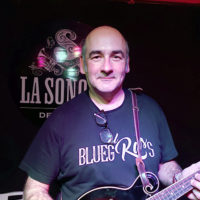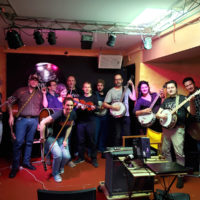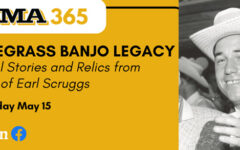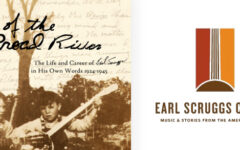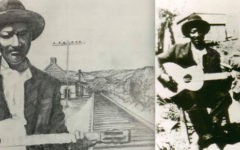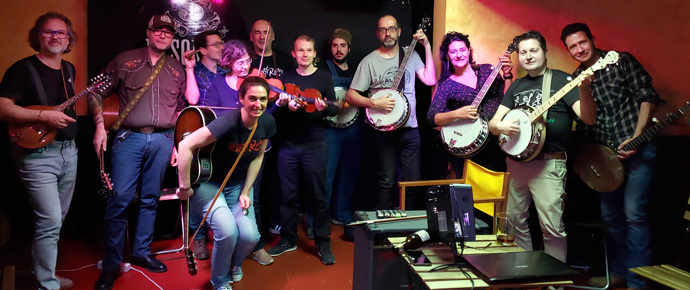
This report on the Barcelona Slow Jam comes from Michael Luchtan, an American living and studying bluegrass in Spain. It can be difficult for those of us in the States to realize what it’s like learning bluegrass in missionary territory, like much of Europe, and we appreciate Michael sharing this coverage.
This past Sunday at a small music club in Barcelona, a network of local musicians got together to learn bluegrass music thanks to the monthly Slow Jam presented by Al Ras, the community-supported Bluegrass and Old Time Music Association. Barcelona is the capital city of Catalonia, an autonomous region of Spain. Even though it is one of the great cultural centers of Europe, being so far away from the origins of bluegrass can make it hard for local musicians to learn about the music. It requires individuals with a passion for bluegrass like Al Ras organizers Xavier and Ignasi Cardús, father and son banjo players. Xavier, the elder Cardús, first fell in love with the banjo back in 1977 when the Instituto de Estudios Norteamericanos brought the McLain Family Band, and the sounds of Kentucky, to Barcelona.
Coming from Europe, it can seem relatively easy for a musician in the states to learn to play bluegrass. For example, in Southern Appalachia, at the Tennessee and Virginia state line where the Carter Family first recorded back in 1927, a kid can easily grow up with bluegrass music all around them. It could be in a band at Church or in an after-school program like JAM (Junior Appalachian Musicians), at the Upper East Tennessee Fiddler’s Convention in rural Flag Pond, or the international Rhythm and Roots festival in downtown Bristol, at the Smithsonian-affiliated Birthplace of Country Music Museum, or at a storefront heritage museum off the Interstate like the Boones Creek Opry House— not to mention the countless musicians and fans of bluegrass like you, from New York City to the great state of California, who attend camps across the United States at least once a year. In any case, many bluegrass musicians from the states grew up hearing this music and had the opportunity to learn the songs “knee to knee,” if not in a family setting, at least in a neighborhood one.
As it happens, the majority of musicians in Barcelona grew up listening to a different sort of music than bluegrass, and it’s not so easy to find festivals and camps here. To address this deficiency, an enormous amount of effort is put in by local musicians like Lluís Gómez from the Barcelona Bluegrass Band, Jorge Rodríguez from YerbAzul, and Juan Paul Caja who organize events like the annual Al Ras Bluegrass and Old Time Music Festival. If you haven’t heard of it, the Al Ras Festival occurs the second weekend of November — this year will be the 19th and you are invited! And everyone is getting excited about the sold-out Barcelona Bluegrass Camp coming up the first weekend of March with instruction by the legendary Tony Trishka.
Other than the two songs we learn at Camp (the songs being prepared in advance for this year are Red Prairie Dawn and My Walking Shoes), most bluegrass musicians in Catalonia have limited opportunity to play together and learn new tunes. There has been a bluegrass jam in Barcelona since the early 2000s, but the jam was left with nowhere to go when L’Astrolabi shut down after hosting a regular jam for ten years. For the last five years, La Sonora de Grácia, the friendly and supportive music club, has opened its doors for bluegrass musicians to have a regular jam on the 2nd and 4th Sunday of the month. But as many of you readers know, it can be hard for a beginner to take a break running at full speed when they are just trying to get their fingers around the notes! The need for an already existing high level of skill can be a stumbling block for musicians wanting to play bluegrass socially, and a roadblock for a community that wants to foster an ever wider local pool of bluegrass musicians to join in the jam.
It was with this in mind that Al Ras organizer Joan Manel started up the Barcelona Bluegrass Slow Jam (Joan Manel plays mandolin with the Newgrass Republic). Readers in the US have certainly encountered slow jams before, but they aren’t often seen out here on the edges of the Bluegrass Nation. In case you aren’t familiar with it, a slow jam is just like a regular jam, only s l o w e r!
Joan’s Jam, as some folks have taken to call it, gets bluegrass novices, whether new to the instrument or just to the style, ready to play with some of the more experienced bluegrass musicians in Barcelona, by giving them the opportunity to take a break under less imposing circumstances.
For example, JuanJo Marti will often take a more risky mandolin break at the slow jam that he wouldn’t at the Fast Jam— where lead organizer Lluís Gómez often asks him to come sing tenor for them. It also gives opportunity for more experienced players like Albert Vojtech, an accomplished harmonica player, to bring an instrument they are learning to the slow jam (Albert is learning the fiddle). Guitarist Nuría Ramírez will even play the spoons on a few songs! The tempo is slow, the community supportive, and the tab is projected on the wall.
Joan Manel leads a crew of between 15 and 40 local musicians through bluegrass and old time favorites, letting newbies in on how to open a song with “potatoes,” the thrown leg that indicates an impending ending, and generally having a great time playing music — just a good bit slower than he usually plays it. Through a network of Whatsapp groups and Facebook pages, the Slow Jammers suggest songs amongst themselves so that fellow neophyte bluegrasseros can work up their favorite song at home. Beginning standards such as Old Joe Clark and Angeline the Baker are mixed in with lesser known but regionally popular songs like Shove the Pig’s Foot A Little Further Into the Fire and Juan Enrique, a Spanish language version of John Henry! The Slow Jam has so far been a great success, offering an opportunity for beginner bluegrasseros to play together and get to know each other and the music. If you don’t have one in your community, we recommend giving it a try!
The Slow Jam happens on the third Sunday of the month, sandwiched in between the regular jams (the 2nd and 4th Sunday of the month) at the same great location, La Sonora de Grácia (Thank you Jordi and Marta!). When Joan Manel projects the lyrics on the wall for a song, everyone sings along in harmony.
It seems people sing along the most when faced with the bare honesty of Will the Circle Be Unbroken, recorded all those years ago by the Carter Family. Its traditional spot as the last song of the Slow Jam is an unbroken arrow through time, connecting musicians in Catalonia to bluegrass musicians everywhere.

